Unpredictable Certainty
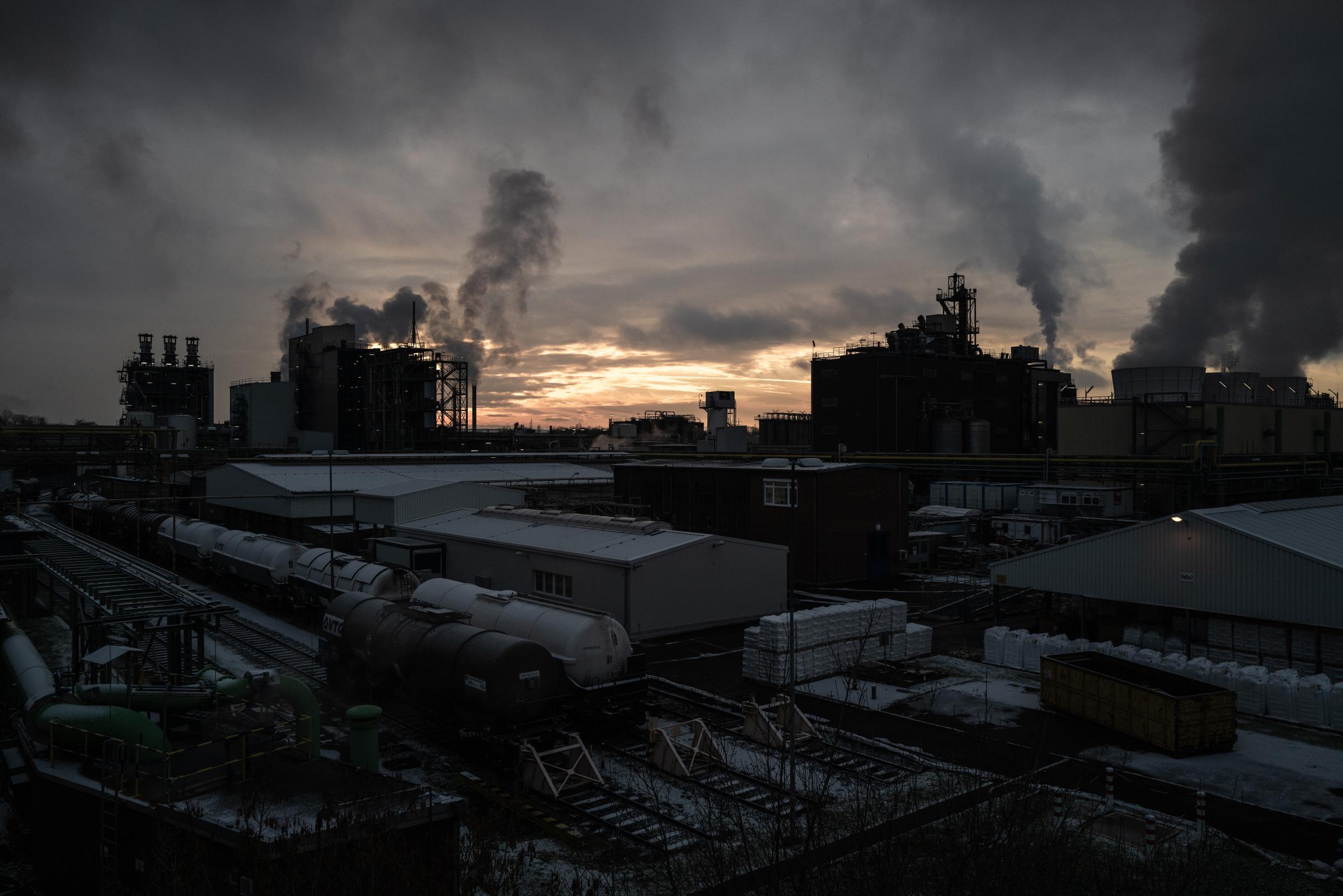
Energy crisis in Germany - What are the effects on the people along the industrial sites on the Rhine? In the background: The fully producing industrial plants near Wesseling, in winter 2022/23, are part of the backbone of the chemical processing industry in Germany .
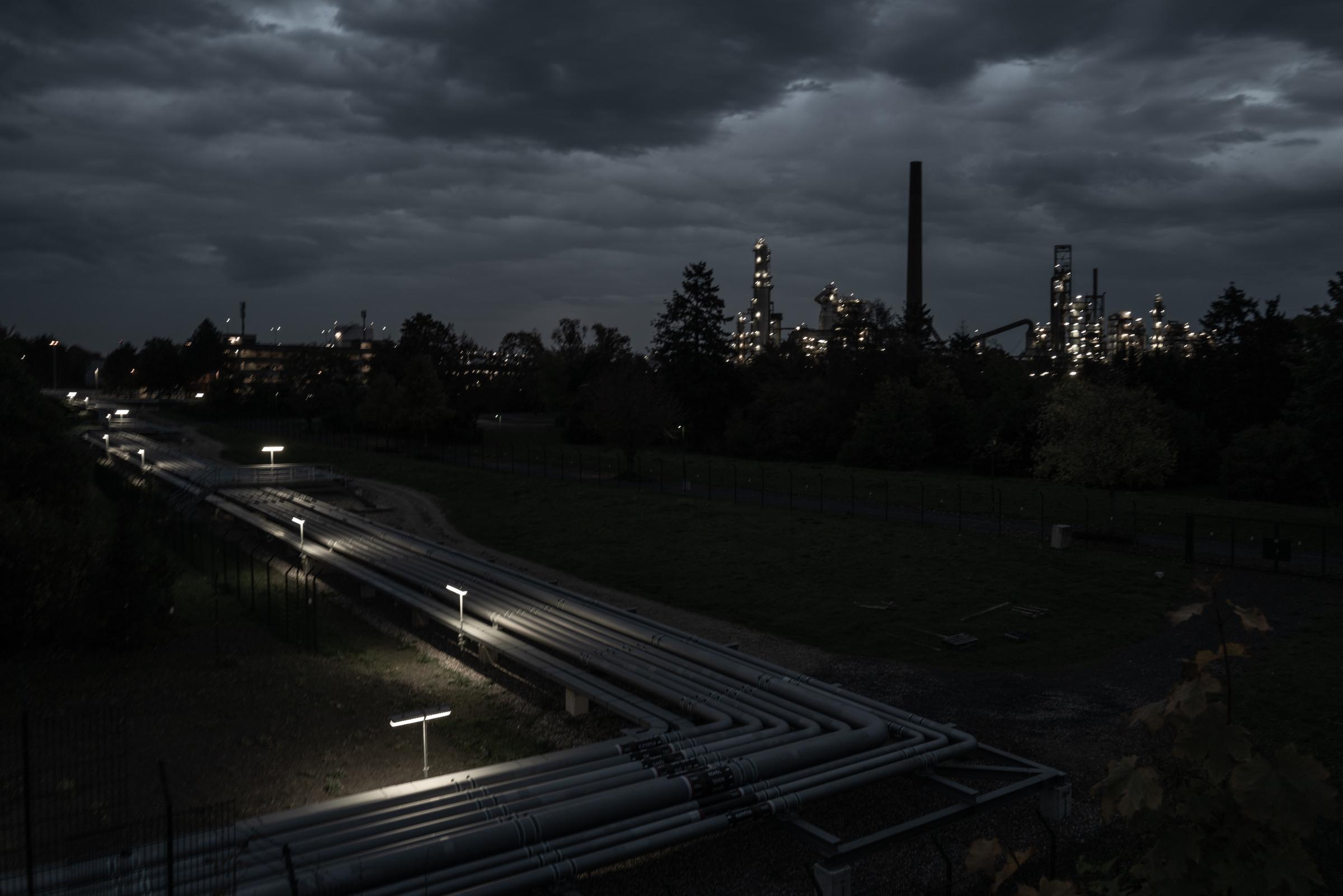
The chemical industry in Wesseling and Godorf covers around 80% of the chemical supply in Germany
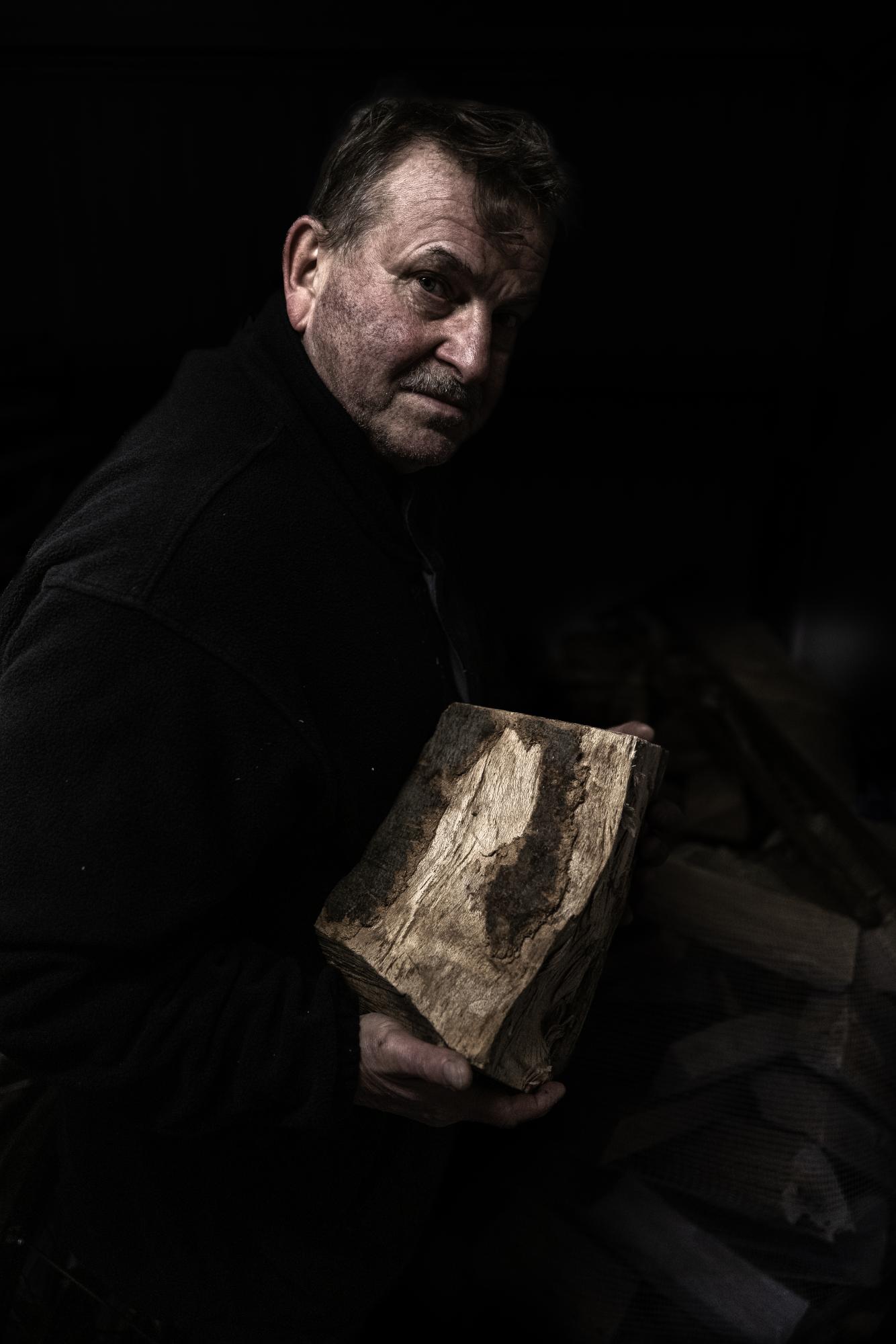
Heating with wood is a conceivable alternative for Jürgen S. in uncertain times of energy crisis. He and his family decided in February, with the beginning of the invasion of Ukraine, to acquire a wood oven and a larger stock of wood for emergencies.
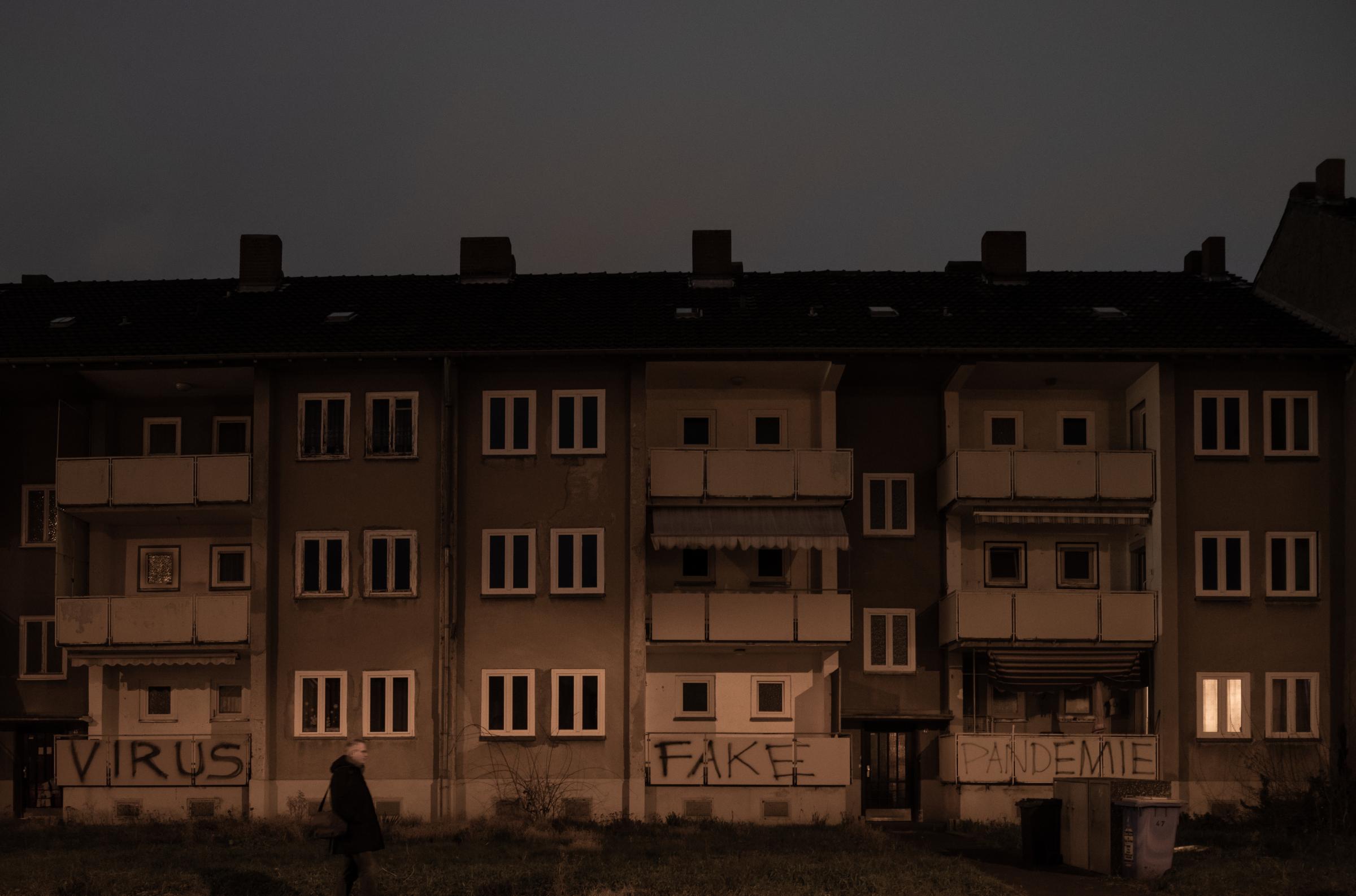
A block of houses to be demolished in Ahrstraße in Wesseling. Some tenants are refusing to move out due to rising costs, partly as a result of the energy crisis.
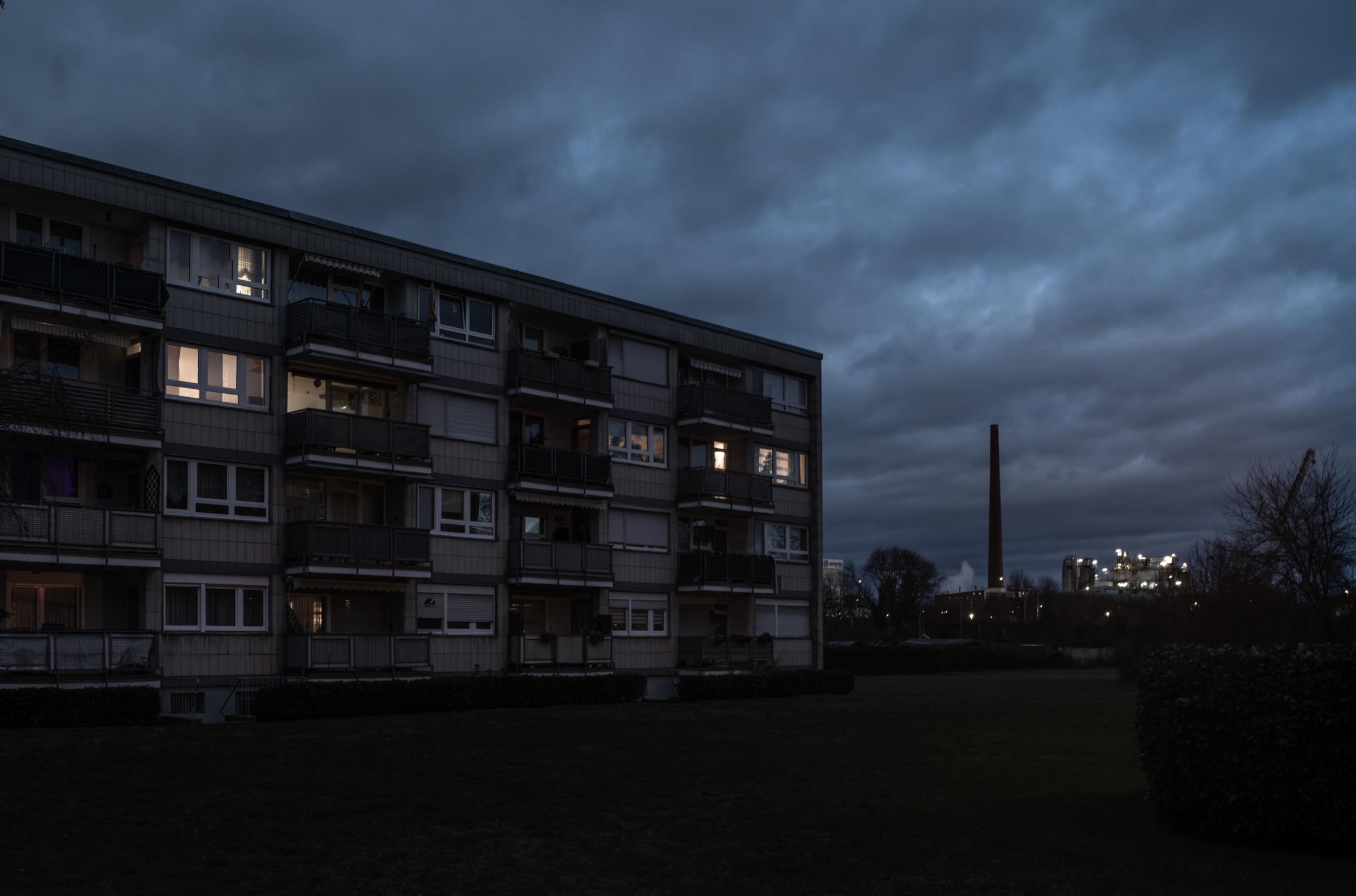
A workers' housing estate for the industrial companies in Wesseling in the so-called "Marmeladen-Viertel" not far from the industrial plants. The lighting is significantly lower during these times. People have to save energy.
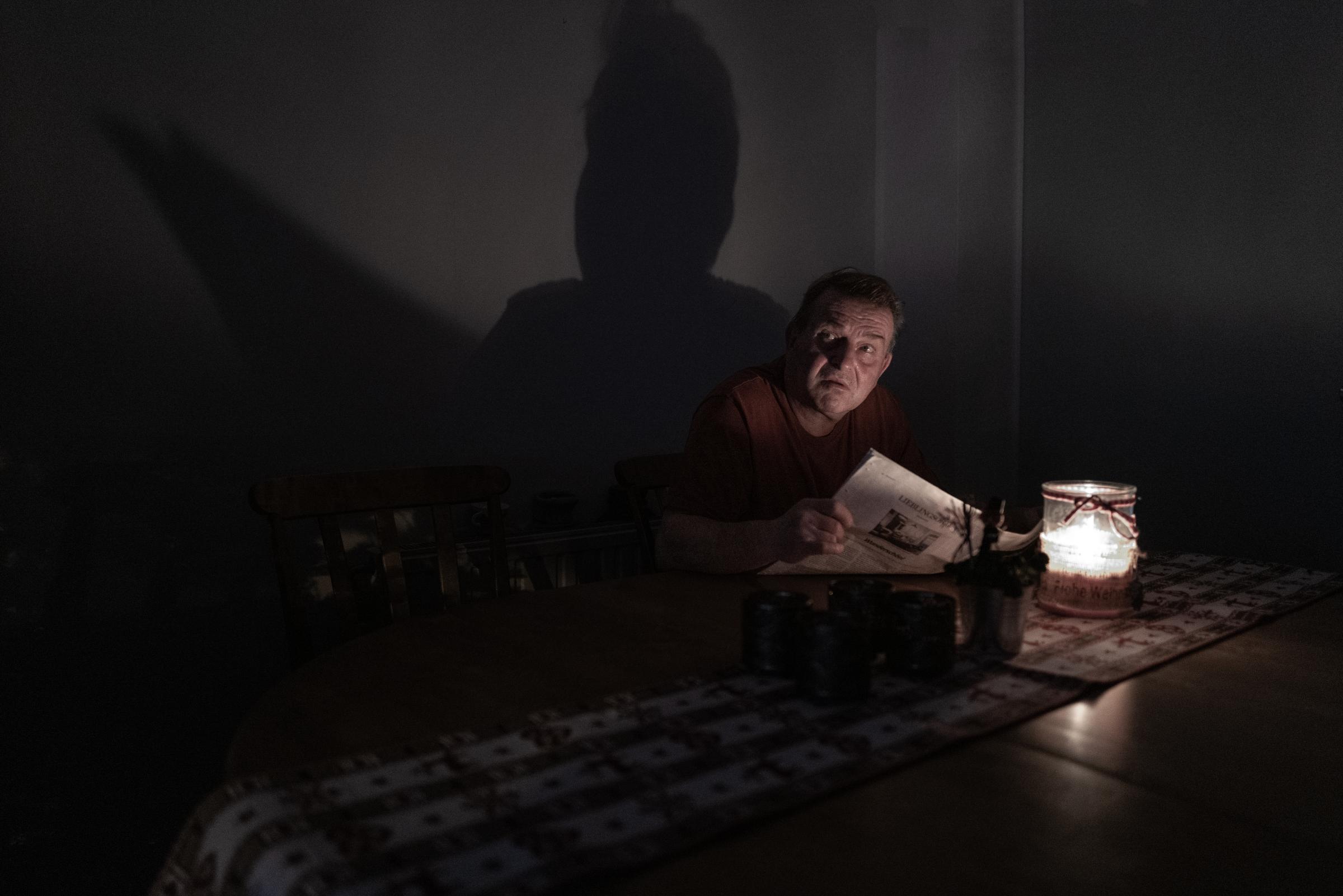
Early evening in Wesseling. After his day shift at his employer, a chemical industrial company, Jürgen S. sits at the dining table in the living room by candlelight and reads the current daily newspaper.
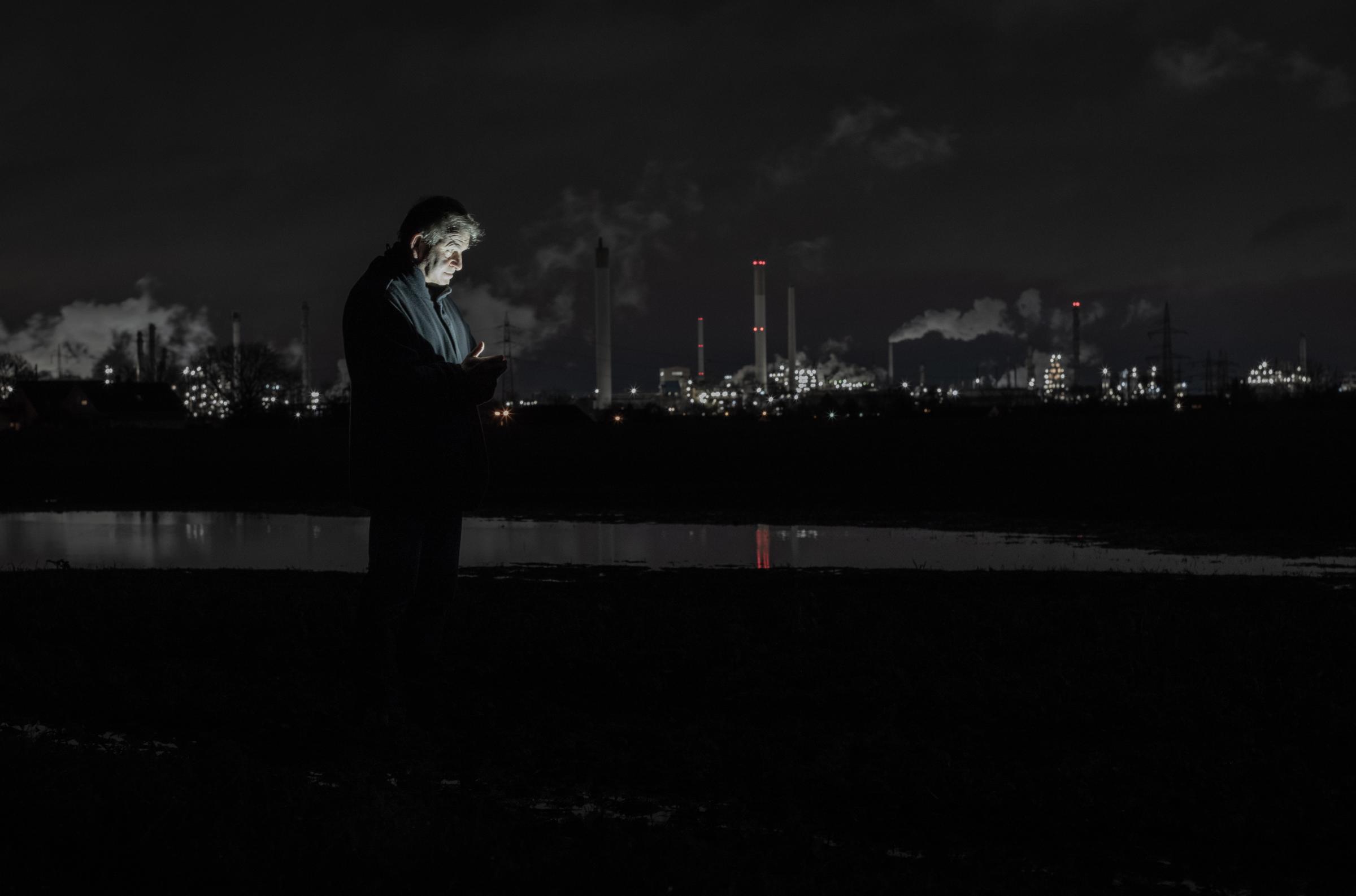
Jürgen S. on his frequently evening round through the fields along the settlements in a district of Wessling, checks his emails. In the background, the brightly lit industrial plants of Wesseling and Godorf.
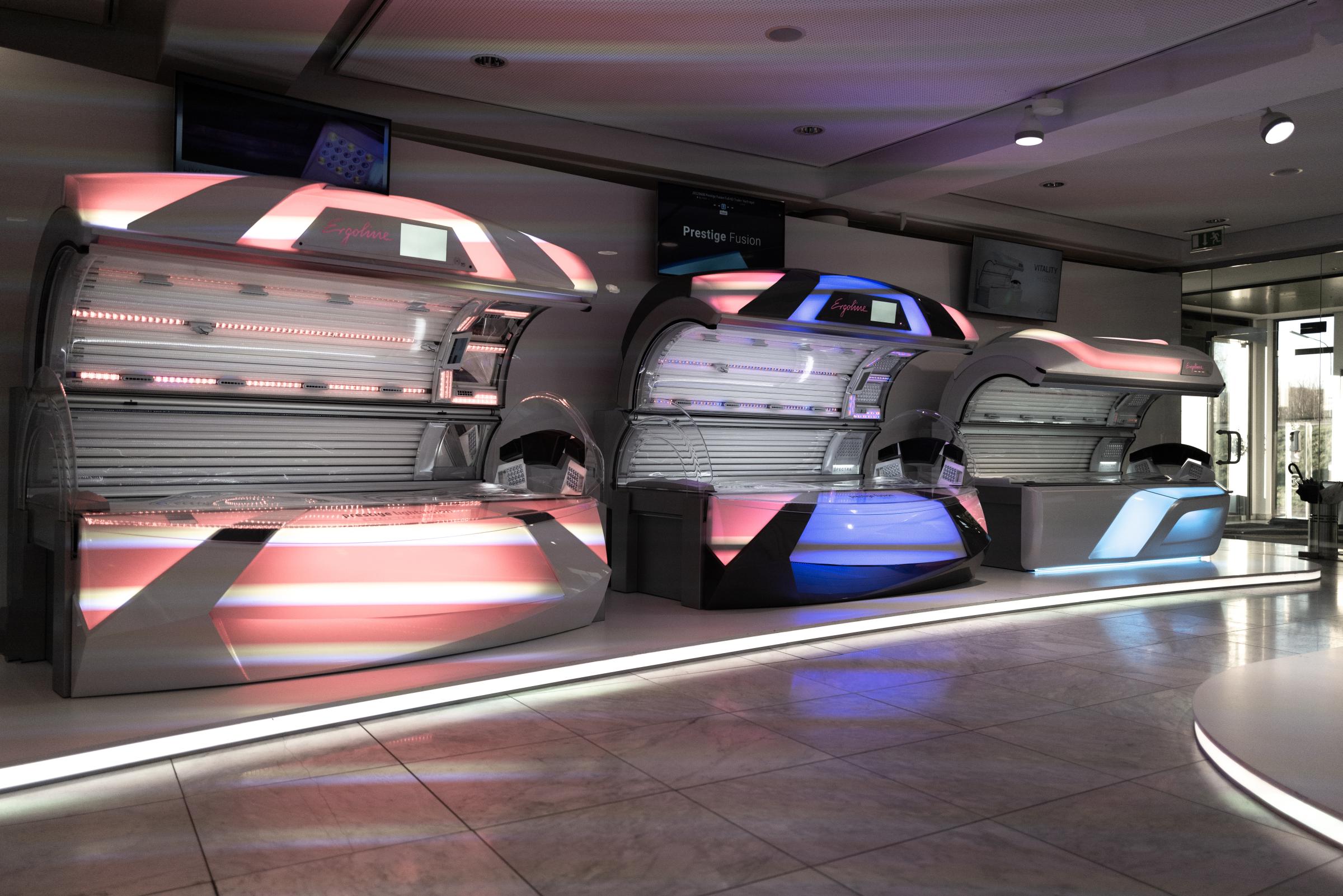
Production site of the JK Group in Windhagen. Ergoline brand sunbeds are a product of the company. The company's customers (tanning salons) have reported that business has been spookily quiet in the meantime, but then again that their customers are perhaps saving money on going on vacation, but are treating themselves to a break in the sunbed instead. And, of course, we are continuing to work on reducing the energy consumption of the devices.
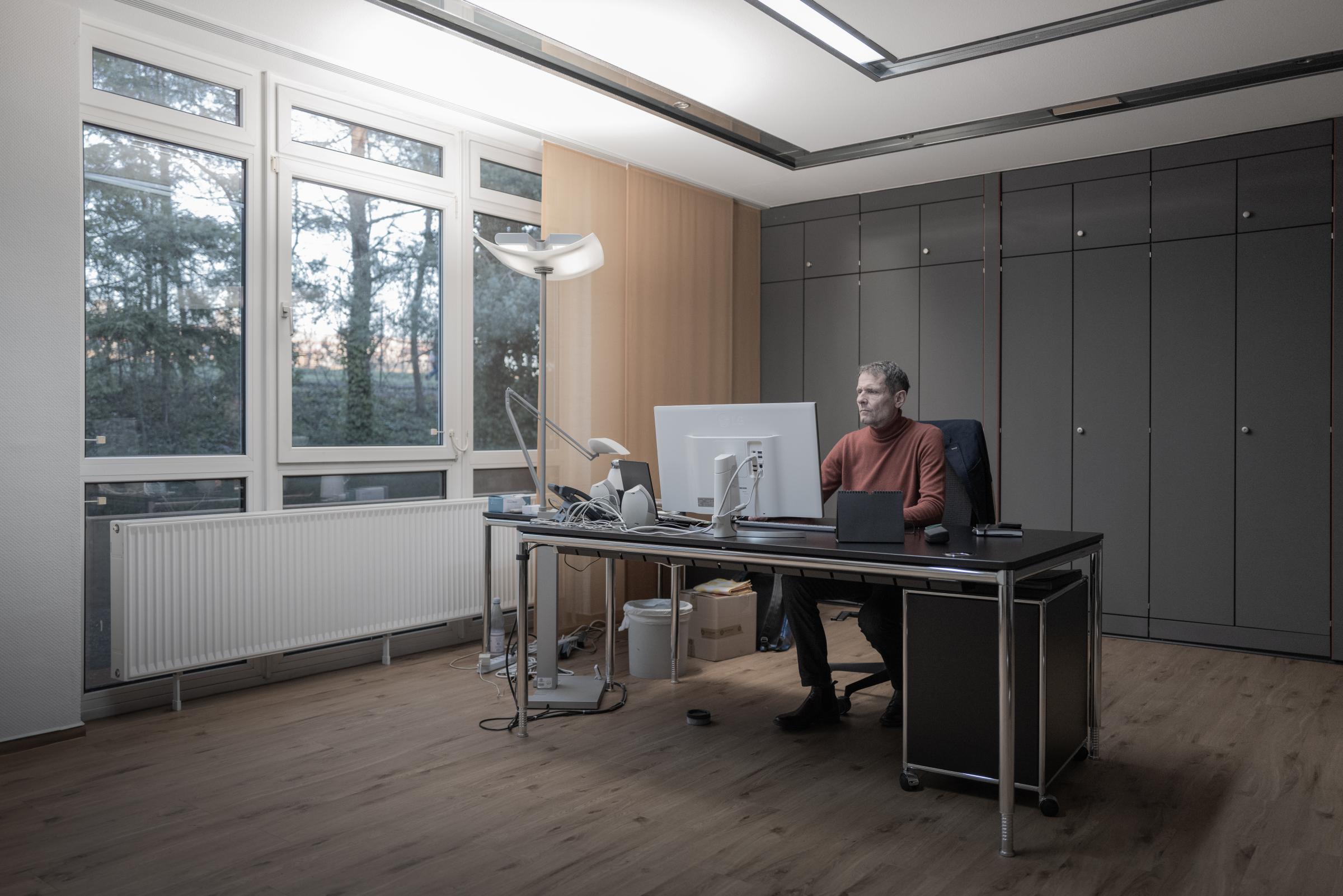
Peter Althaus, CEO of the JK Group in Windhagen (West Germany) at his desk. He is working intensively on reducing the energy required to use the Ergoline sunbeds.
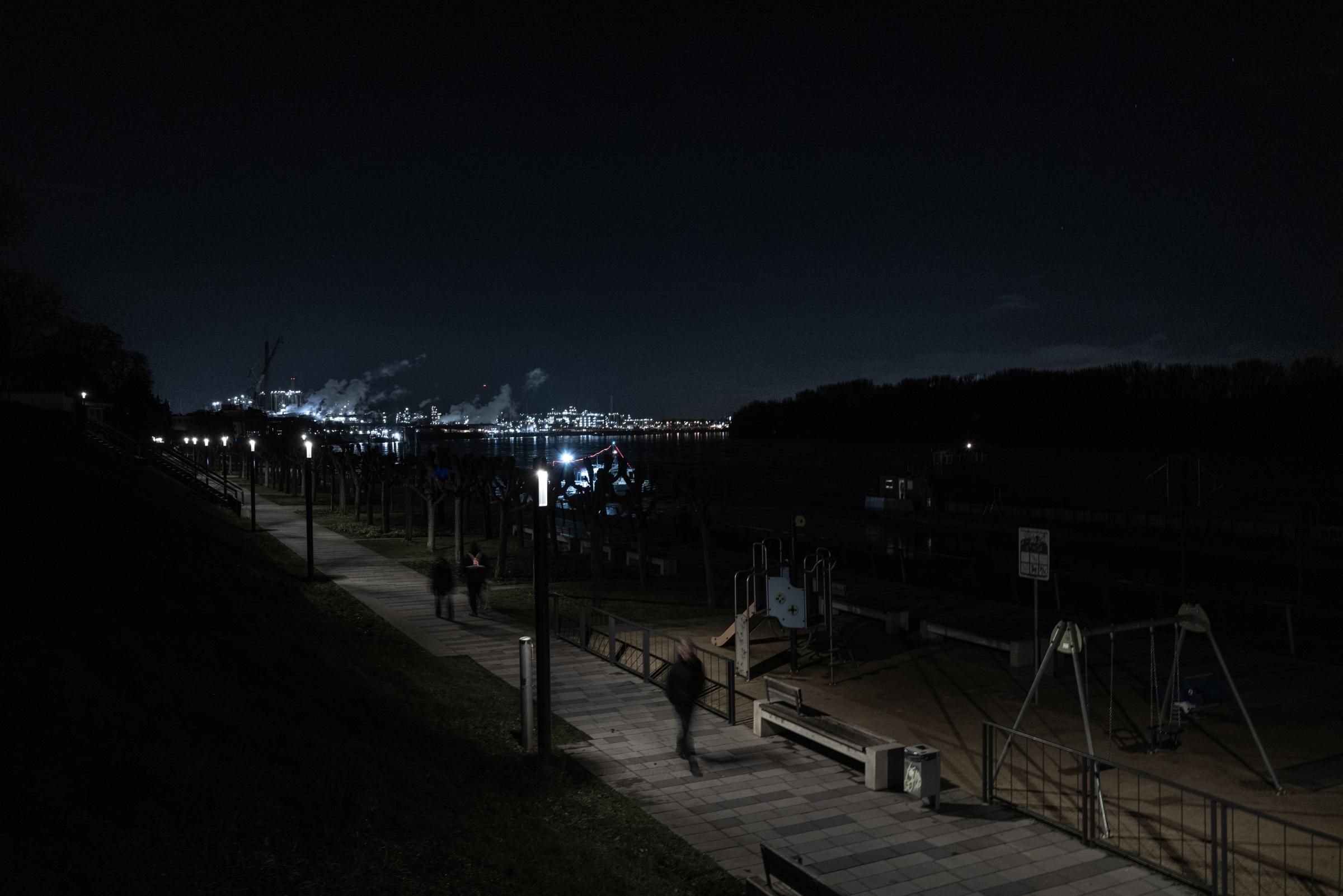
Strollers on the Rhine promenade in Wesseling. In the foreground a sparsely lit children's playground. In the background the brightly lit industrial plants of Godorf.
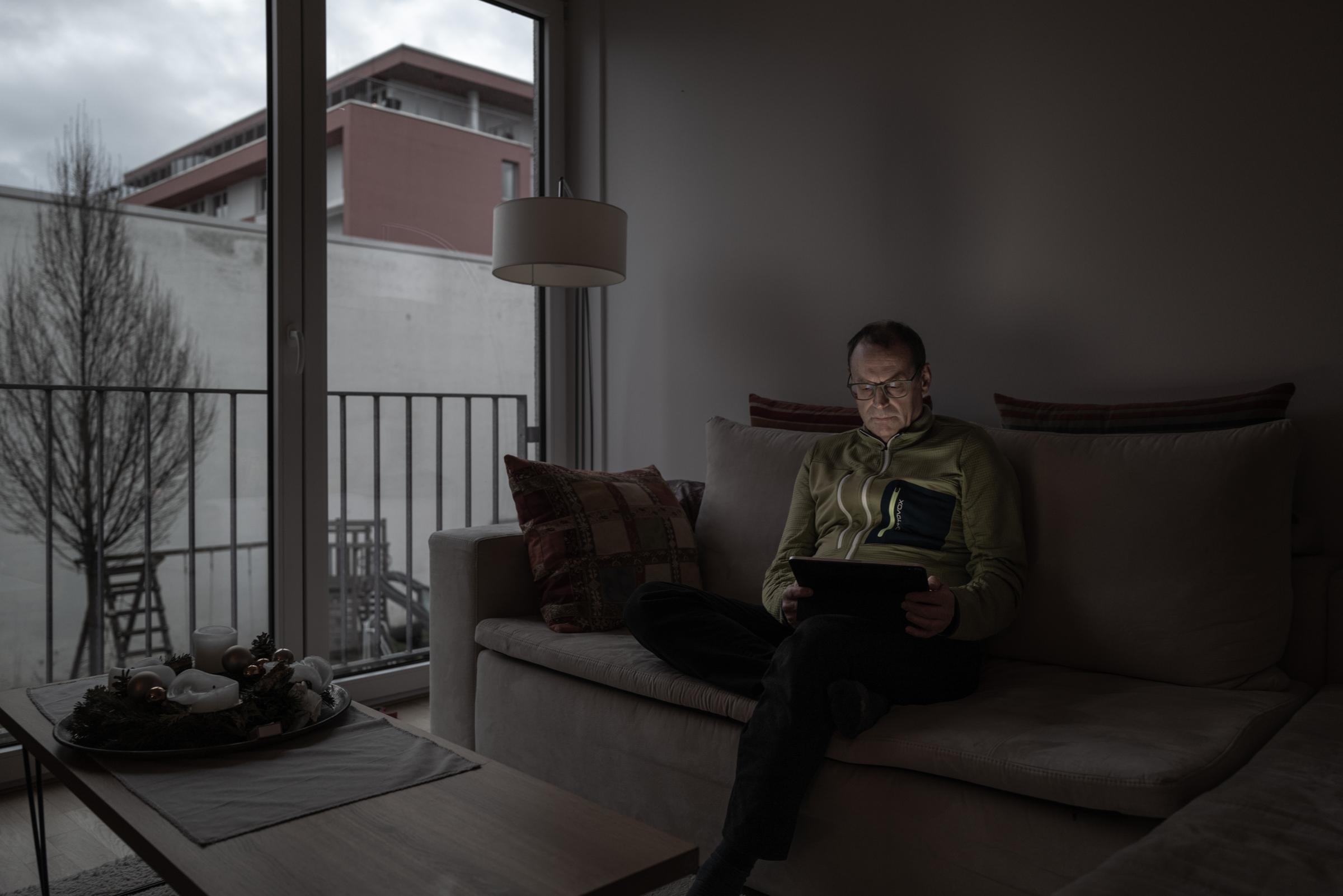
Beat Zingg, 59, manager at a tourism company in his apartment in Bonn at the Rhine River. Despite being personally unaffected, he also saves energy and uses significantly less light than in previous years. Therefore he is sitting close to the window, as long as daylight allows to read.
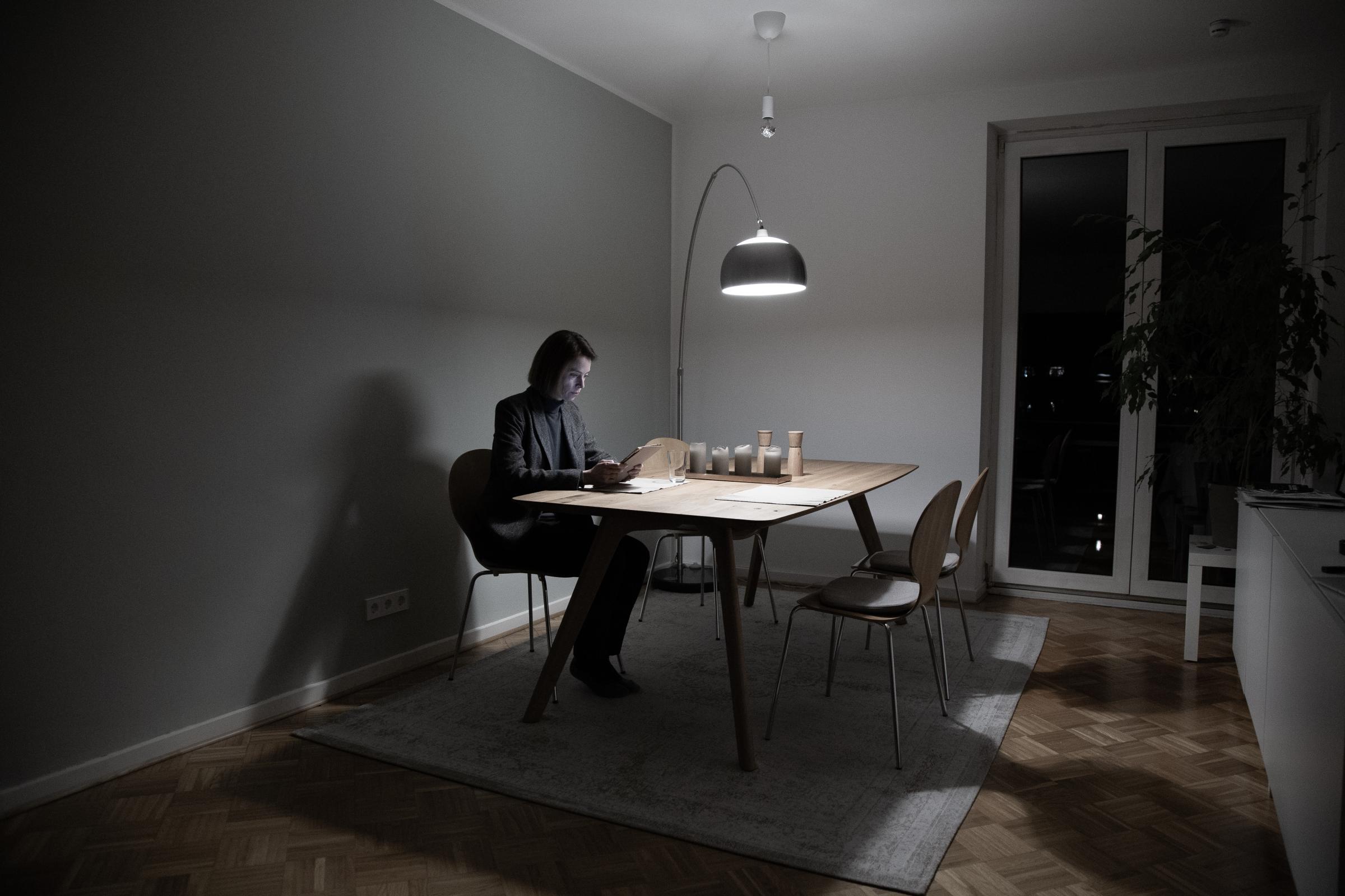
Sandra Koch (45) is a Market Segment Manager in the supply industry and responsible for
EMEA. Born in the Rhine Valley she is living alone in Koblenz in a 120sqm apartment in the
suburbs of Koblenz. She is working for 17 years in a company heavily belonging on energy for
their production. Sandra faces the cost increases in her job as well as in her private life. She
turned down the heating to 19 degrees in the rooms she prefers to live in and thought a lot
about reducing energy (like light, electricity etc) from summer 2022. If she is looking out of
her window she overlooks a small path along the Rhine river, which is now darker in the
evening.
EMEA. Born in the Rhine Valley she is living alone in Koblenz in a 120sqm apartment in the
suburbs of Koblenz. She is working for 17 years in a company heavily belonging on energy for
their production. Sandra faces the cost increases in her job as well as in her private life. She
turned down the heating to 19 degrees in the rooms she prefers to live in and thought a lot
about reducing energy (like light, electricity etc) from summer 2022. If she is looking out of
her window she overlooks a small path along the Rhine river, which is now darker in the
evening.
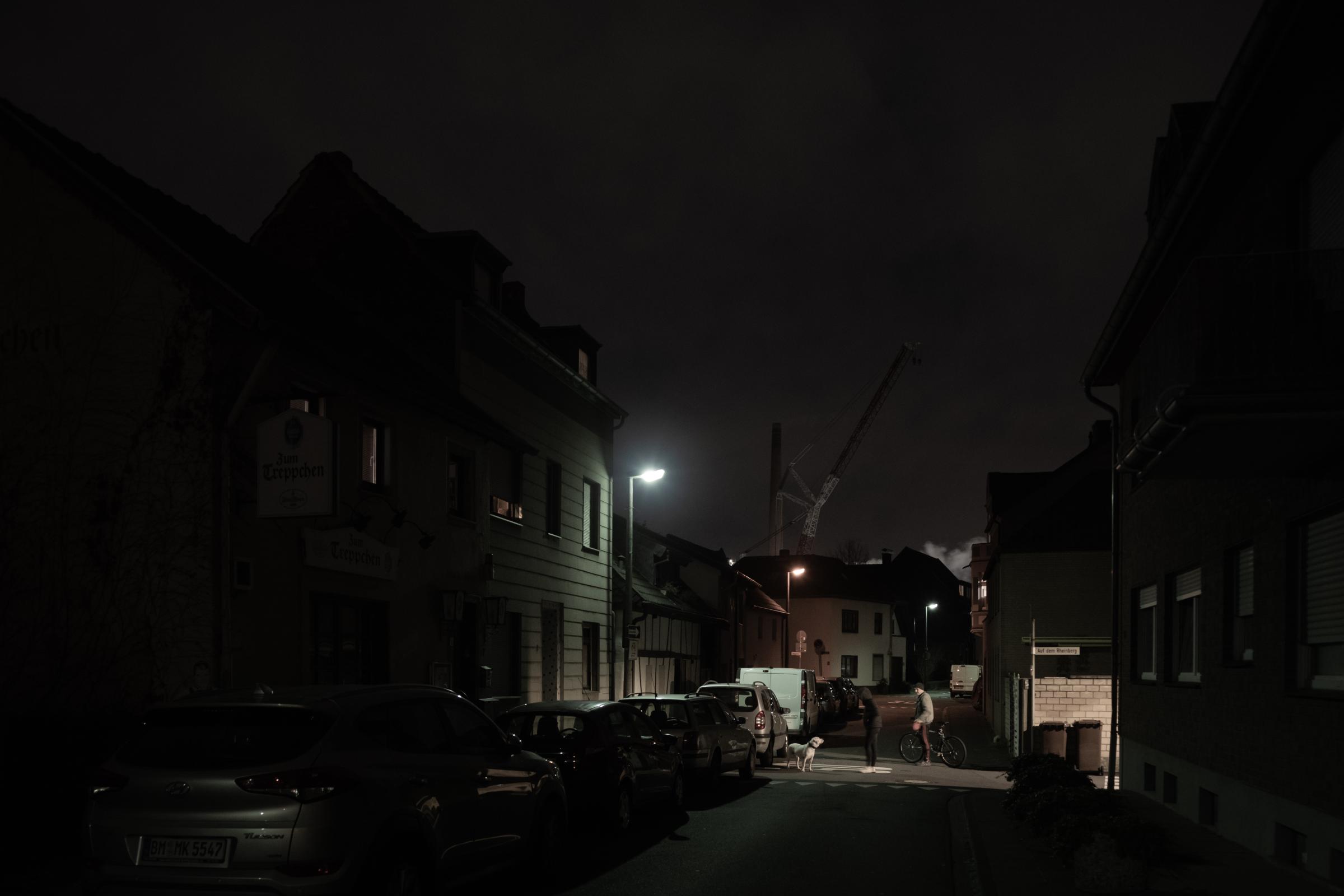
Poorly lit living spaces not far from the industrial plants in the industrial location of Wesseling.
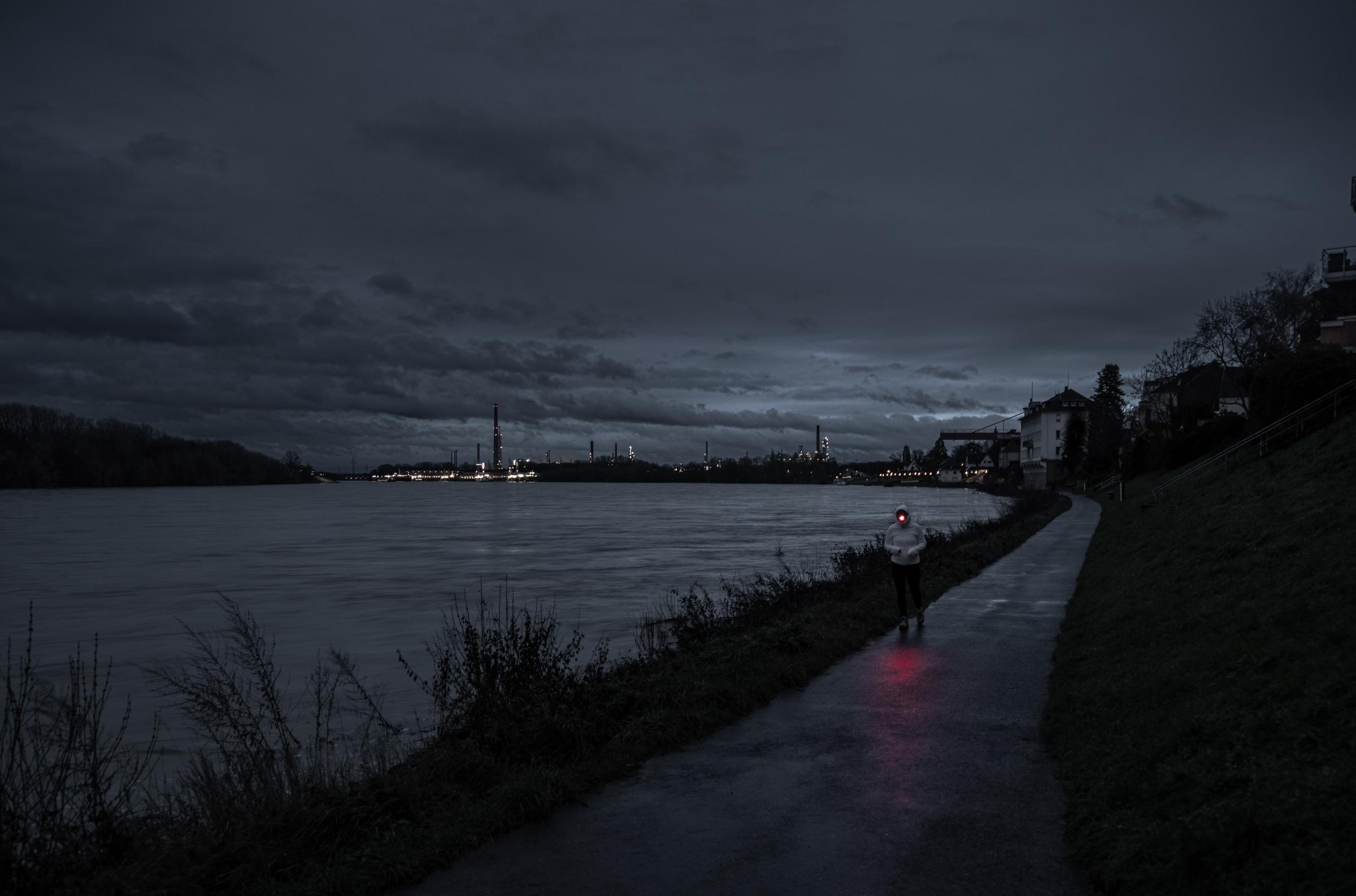
A jogger on the Rhine near Wesseling. In the background the brightly lit in the industrial port of Wesseling.